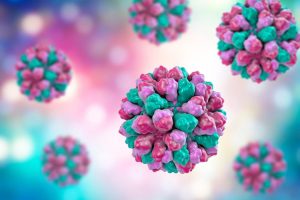To mark World Hypertension Day this Saturday, the American Heart Association offers advice on how to lower and control your blood pressure.
High blood pressure affects nearly half of American adults, and three-quarters of those with high blood pressure don’t have it under control, the heart association says.
High blood pressure is the leading cause of heart attack and stroke, and the most significant controllable risk factor for these conditions. It also contributes to poor outcomes in COVID-19 patients.
“Now, more than ever, it is important for you to pay attention to your blood pressure, know your numbers, work with your health care provider to control your levels and manage your risks. Lowering your blood pressure is one of the most important things you can do to reduce your risk of having a heart attack or stroke,” Dr. Mitchell Elkind, president of the American Heart Association (AHA), said in an AHA news release.
Small changes can make a big difference in managing your blood pressure. Here are some tips:
- Check your blood pressure often. 120/80 or below is considered normal. If your blood pressure is 130/80 or above, that is high blood pressure and it means you have an increased risk of heart disease and stroke.
- Take blood pressure pills as prescribed. Prescription medication can be one of the most effective ways to manage your blood pressure. Tell your doctor if you have any concerns about your prescriptions.
- Read the labels on over-the-counter drugs. Some common medications can significantly affect your blood pressure. For example, pain relievers such as ibuprofen (Advil, Motrin) and naproxen (Aleve) can raise blood pressure. Consider acetaminophen (Tylenol) for pain instead, and talk to your doctor about which pain relievers are right for you, the AHA suggests.
- Maintain a healthy weight. Using a measurement of height and weight called body mass index (BMI), aim to maintain a BMI between 18.5 and 24.9.
- Eat a healthy, low-salt diet. Start with lots of fruits, vegetables and whole grains. Choose low-fat dairy products, lean meats, and cut back on saturated and total fat. Try to stay under 1,500 mg of sodium/salt a day or at least cut back by 1,000 mg per day.
- Be active. Get at least 150 minutes of activity per week, with a combination of moderate and vigorous aerobic activity.
- Limit alcohol. Have no more than one or two drinks a day. (One for most women, two for most men). If you don’t drink, don’t start.
- Don’t smoke. Both tobacco products and vaping have nicotine that can raise your blood pressure.
More information
The U.S. National Heart, Lung, and Blood Institute has more on high blood pressure.
Copyright © 2025 HealthDay. All rights reserved.

























